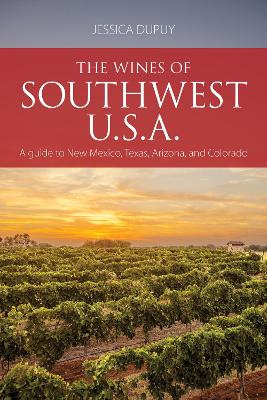The Infinite Ideas Classic Wine Library
1 total work
When most people think of the American Southwest they think of arid, windswept terrain, vast ranches framed by barbed-wire fences and scattered with grazing cattle, terraced rock formations and jagged mountain peaks towering in an array of rich, earthen reds and browns against the backdrop of radiant blue skies, and sunsets that fade these vibrant colors into a haze of pastel pinks, oranges, and purples. It's the birthplace of the American frontier, a playground for outdoor adventurers, and the inspiration for countless watercolor canvases and vivid oil-painted landscapes. Indeed, this romantic imagery has for centuries encouraged myriad settlers to migrate to the region. But few would have ever associated this rich and exciting region with wine. Yet it was in this part of the country that the first Vitis vinifera vines in the United States are said to have been planted. As early as 1598, vines were planted by Spanish Franciscan monks in New Mexico and were also planted in west Texas, all the way west to California, during the seventeenth century. However, it really wasn't until the 1970s that the modern wine industry took off. By and large it was Texas that led the pack in terms of overall growth in vineyard plantings and production in the decades that followed. But other states within the region - New Mexico, Arizona, and Colorado - have also evolved, with compelling stories and promising wine industries of their own. This book is in four parts, one for each state. Texas serves as the cornerstone for this region with New Mexico, Arizona, and Colorado all rapidly growing in importance. For each state Dupuy addresses eight key topics to cover the landscape of the wine industry: history, regions, climate, challenges, grapes, leading producers, leading grape growers, and the future. In addition, each state's chapters include vignettes highlighting interesting pieces of history and culture, or profiling significant wine industry personalities.
